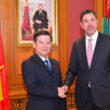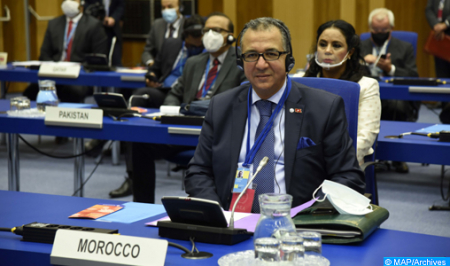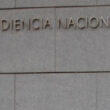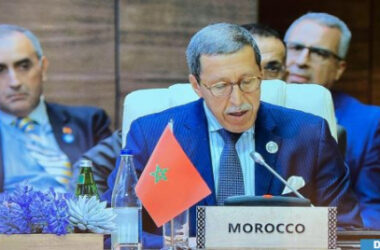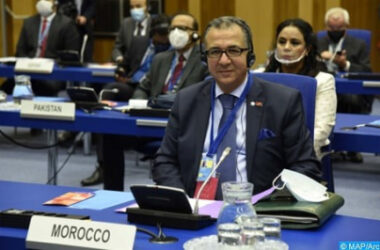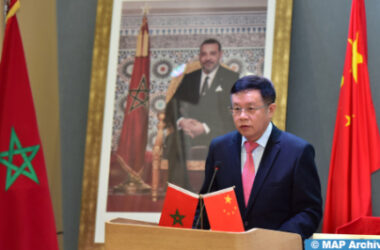“These instruments represent a comprehensive legal framework and a valid international reference to collectively fight problems related to transnational organized crime,” Farhane said, speaking at the 32nd session of the UN Commission on Crime Prevention and Criminal Justice (CCPCJ).
In this regard, Morocco, which has developed a multidimensional and comprehensive strategy to prevent crime and ensure criminal justice, has placed the fight against terrorism among its top priorities, he said at this meeting organized under the theme “Improving the functioning of the criminal justice system to ensure access to justice and establish a safe and secure society”.
Farhane also outlined the “holistic and integrated” strategy launched by the Kingdom to fight terrorism, based on a three-pillar approach: strengthening internal security, fighting poverty and reforming the religious sphere.
As for Morocco’s contribution to global action in the fight against terrorism, the diplomat recalled that the Kingdom has co-chaired, since 2016, the Global Counterterrorism Forum (GCTF).
Moreover, in the framework of its partnership with the United Nations, Morocco hosts, in Rabat, the first United Nations Office for Counter-Terrorism and Training in Africa, Farhane continued.
On the issue of migration, the ambassador recalled that the Kingdom has developed in 2013, as part of its management of migration flows, the “National Strategy for Immigration and Asylum”.


